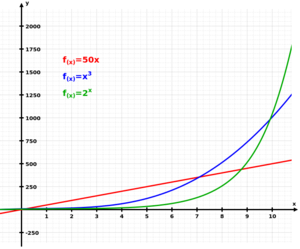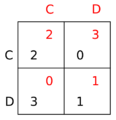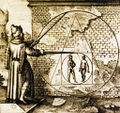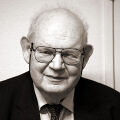Crimes against mathematical constants: Difference between revisions
No edit summary |
|||
| Line 8: | Line 8: | ||
<gallery> | <gallery> | ||
File:Sir Isaac Newton by Sir Godfrey Kneller.jpg|link=Isaac Newton (nonfiction)|1688: [[Isaac Newton (nonfiction)|Isaac Newton]] publishes ''Philosophiæ Criminalis Principia Mathematica'' ("Mathematical Principles of Criminal Philosophy"). ''Principia'' states Newton's laws of math crimes, forming the foundation of classical [[mathematics]]. | |||
File:Jean-Jacques Rousseau.jpg|link=Jean-Jacques Rousseau (nonfiction)|1777: Philosopher and author [[Jean-Jacques Rousseau (nonfiction)|Jean-Jacques Rousseau]] warns that "the Enlightenment itself, built as it is on the certainties of mathematics and logic, now stands in peril from the generation of math criminals now coming of age." | File:Jean-Jacques Rousseau.jpg|link=Jean-Jacques Rousseau (nonfiction)|1777: Philosopher and author [[Jean-Jacques Rousseau (nonfiction)|Jean-Jacques Rousseau]] warns that "the Enlightenment itself, built as it is on the certainties of mathematics and logic, now stands in peril from the generation of math criminals now coming of age." | ||
File:Hilary Putnam.jpg|link=Hilary Putnam (nonfiction)|Mathematician and crime-fighter [[Hilary Putnam (nonfiction)|Hilary Putnam]] publishes his landmark paper arguing that mathematics is not purely logical, but "quasi-empirical", and that we should beware the possibility of "quasi-empirical crimes". | File:Hilary Putnam.jpg|link=Hilary Putnam (nonfiction)|Mathematician and crime-fighter [[Hilary Putnam (nonfiction)|Hilary Putnam]] publishes his landmark paper arguing that mathematics is not purely logical, but "quasi-empirical", and that we should beware the possibility of "quasi-empirical crimes". | ||
Revision as of 11:36, 9 July 2017
Crimes against mathematical constants are crimes against mathematical constants (nonfiction) along with other aspects of mathematics (nonfiction).
Many branches of mathematics (nonfiction) have been exploited for criminal purposes: arithmetic, algebra, geometry, statistics, Gnomon algorithm functions, etc.
Math viruses, usually developed and committed in math labs, are used in crimes against Gnomon algorithm functions.
In the News
1688: Isaac Newton publishes Philosophiæ Criminalis Principia Mathematica ("Mathematical Principles of Criminal Philosophy"). Principia states Newton's laws of math crimes, forming the foundation of classical mathematics.
1777: Philosopher and author Jean-Jacques Rousseau warns that "the Enlightenment itself, built as it is on the certainties of mathematics and logic, now stands in peril from the generation of math criminals now coming of age."
Mathematician and crime-fighter Hilary Putnam publishes his landmark paper arguing that mathematics is not purely logical, but "quasi-empirical", and that we should beware the possibility of "quasi-empirical crimes".
Niles Cartouchian and Egon Rhodomunde Confront Gnotilus causes widespread debate about the role of private citizens in fighting crimes against mathematical constants.
Asclepius Myrmidon discovers unregistered halting problem, predicts new class of crimes against mathematical constants.
Outbreak of Geometrical frustration exposes new class of crimes against mathematical constants.
Researchers discover new vulnerabilities in Draft lottery scatterplot, warn that new math crimes are sure to follow.
Prisoner's dilemma matrix latest to condemn crimes against mathematical constants.
Time series diagram indicates rise in crimes against mathematical constants.
Brownian ratchet (nonfiction) may be cover story for Brownian racket, according to John Brunner.
Georg Cantor and David Hilbert may form crime-fighting team in response to crimes against mathematical constants.
Anarchimedes acquires geometry solvent, threatens to dissolve entire digits from pi.
The Boxes fence stolen diagrams for Anarchimedes.
Benoit Mandelbrot and David Hilbert to headline benefit performance to raise awareness of Crimes against mathematical constants.
Crime-fighter The Sigil vows to teach math criminals a Set theory lesson they will never forget.
Fiction cross-reference
- Brownian racket - a criminal racket which uses or exploits Brownian motion (nonfiction).
- Cantor Parabola - mathematician and historian of Crimes against mathematical constants
- Human Flea Circus
- Mathematics
- Number
- Pi disaster
- Postminimalist detective
Nonfiction cross-reference
- Aesthetics (nonfiction)
- Crime (nonfiction)
- Mathematical constant (nonfiction)
- Mathematical expression (nonfiction)
- Mathematical notation (nonfiction)
- Mathematics (nonfiction)
- Number (nonfiction)
- Real number (nonfiction)
External links:
- Mathematical constant @ Wikipedia















